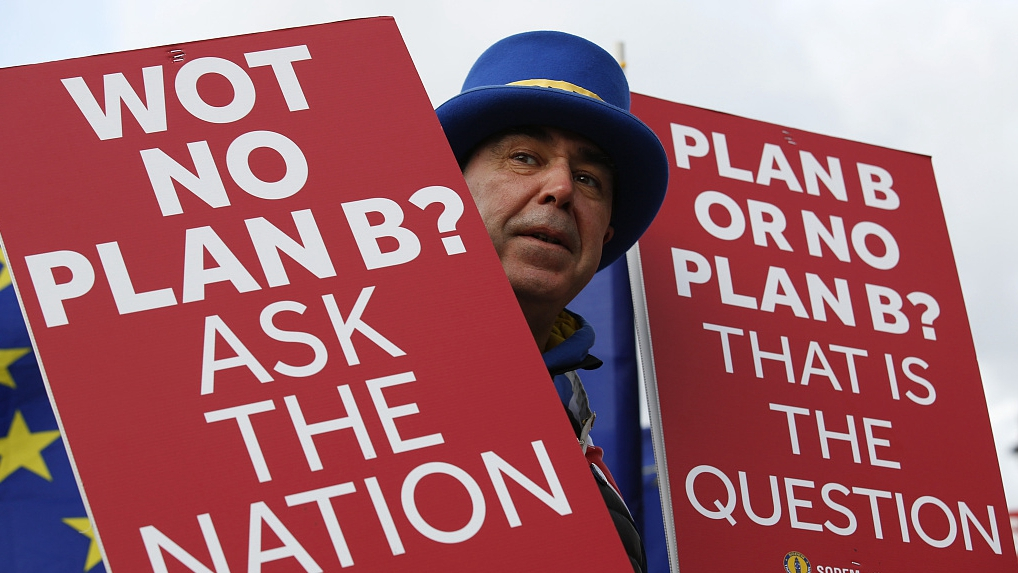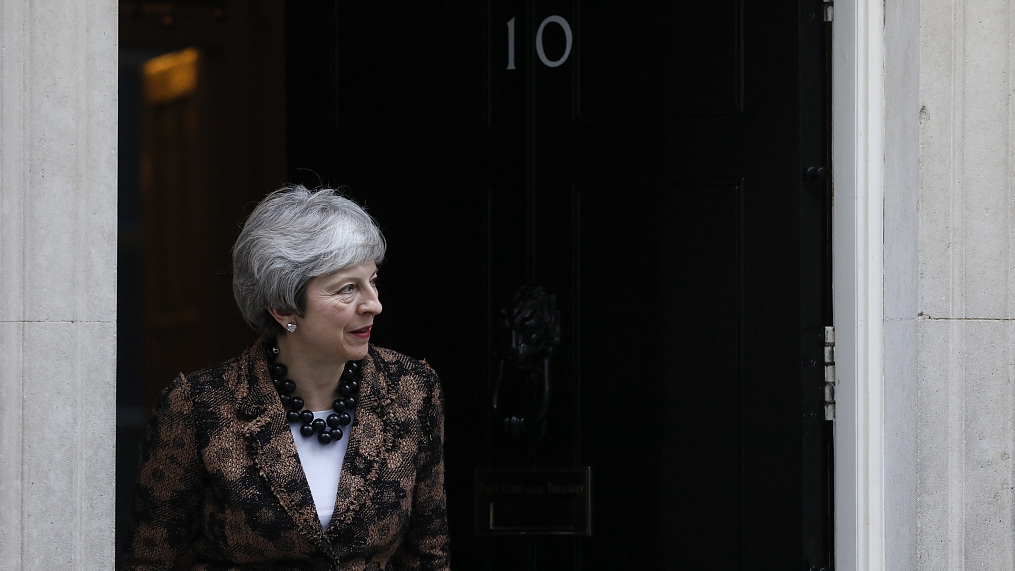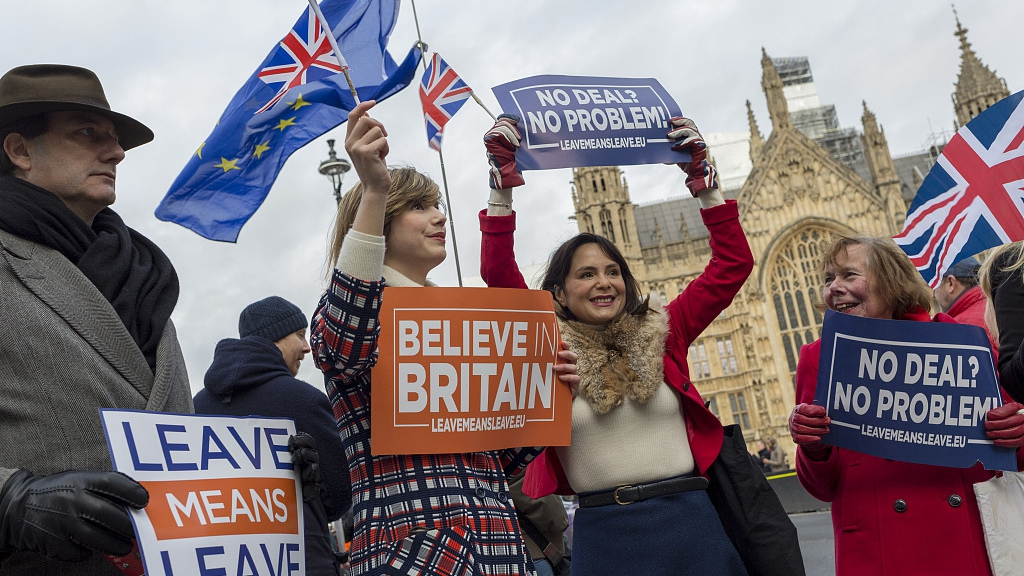
Europe
18:17, 23-Jan-2019
Bored of Brexit? Bad news, even an exit won't end it
By John Goodrich

After close to three years of headlines, Brexit is making more than a few people weary.
"Many of us in the country just want to move on and talk about something else, we want to be out and we know it will work just fine," euroskeptic MP Sir John Redwood opined in an early January interview.
In late 2018, pollsters ORB asked Britons if they “just want those responsible to get on with it.” A majority, 52 percent, agreed.
Read more:
For those 52 percent – and Sir John – there's good news, but mainly bad.
The good news: The next few weeks will be dramatic, and may yet lead to an exit on March 29.
The bad news: Exit wouldn't be the end of Brexit. Even if MPs break the deadlock in a meaningful vote in February, Brexit will linger for years.
Delay, delay, extension?
Britain and the European Union (EU) have shaken hands on a legally-binding, 585-page withdrawal agreement. This – along with an inexplicit political declaration – took 20 months of formal negotiation.
It has three key points: How much Britain must pay the EU in a "divorce" settlement (39 billion British pounds, to the anger of some MPs), protecting the rights of EU citizens in the UK and vice versa post-Brexit, and how to keep the Irish border open post-Brexit (the solution to which infuriates hardline Conservatives and Democratic Unionists).
Two and a half years after the Brexit vote, the outcome is a proposal with little support.
Since securing the deal with the EU in November, Prime Minister Theresa May has postponed a vote on the deal she struck by one month, then, after losing heavily, presented a Plan B which looks a lot like Plan A.

An anti-Brexit demonstrator holds placards during protests in London, UK, January 22, 2019. /VCG Photo
An anti-Brexit demonstrator holds placards during protests in London, UK, January 22, 2019. /VCG Photo
Jason Langrish, a special adviser to Global Public Affairs who was involved in the recent EU-Canada trade deal, told CGTN that May "triggered Article 50 prior to having some sort of idea, let alone consensus, on what the UK negotiating position would be. They have since wasted a lot of time and energy during the two-year period and seem no closer to a unified position."
A meaningful vote is not expected until mid-February, after further talks with the EU and just weeks ahead of Brexit day. May aims to reduce the options available to force support for her deal.
Helen Thomas, CFA of Blonde Money, told CGTN, "She's (May) trying to chop off potential future paths, in order to try and coalesce everybody around a much more binary option. It's only then that we're really going to get MPs in numbers to gather around an alternative."

British Prime Minister Theresa May in Downing Street, London, UK, January 21, 2019. /VCG Photo
British Prime Minister Theresa May in Downing Street, London, UK, January 21, 2019. /VCG Photo
Many MPs – even members of the government – have said a delay to Brexit day would likely be needed if any deal was struck. And a majority appears to be grouping behind measures to rule out a no-deal, with indicative votes expected to take place on January 29, among others, extending Article 50 if no agreement is passed by March 29.
And even if a deal were to be passed, more votes would take place on the details. Almost all options – apart from a no-deal – would likely require an extension of Article 50, and further delay.
Brexit Part Two
Britain may eventually leave the EU with a deal or a no-deal. What next? A deal on the future relationship would still have to be negotiated and passed in parliament.
Leaders of the Brexit campaign promised "the easiest trade deal in history," but the political declaration struck between Britain and the EU on their post-Brexit ties – once envisaged as a blueprint for a future trade deal – contains 26 pages and even fewer certainties.
The process of the past two and a half years would be repeated, and part two of negotiations will likely be much more complicated.
"The irony is that the Brexiters think this deal, and other bilateral deals can be done quickly even though it's been two years since Article 50 was triggered and they are no closer to an agreement on the exit terms, let alone the future relationship with the EU," Langrish said.

Leave supporters hold placards during protests in London, UK, January 15, 2019. /VCG Photo
Leave supporters hold placards during protests in London, UK, January 15, 2019. /VCG Photo
A faction of Brexit-backing MPs favor a clean break – via a no-deal – and a trade deal similar to that Langrish worked on, which took seven years to complete.
Langrish believes an EU-UK deal would take at least two years to negotiate, one more to ratify, and could "easily take another year at the outside scoping out the talks" – working out what will be discussed.
While the existing relationship between Britain and the EU might seem like an advantage when striking a new deal, Langrish warns the situation is unusual: The two sides are currently wholly converged and are planning to diverge, the exact opposite of how trade deals normally work.
"As the two sides diverge, managing the relationship will become more complex and require ongoing work to try to find solutions such as mutual recognition of each other's approaches. It could well be a very messy process and introduce a lot of uncertainty."
A way out?
There's no simple fix, but momentum is gathering behind the one option that could end the process quickly if not the argument. A second referendum.
Polling indicates a majority of Britons are now in favor of both staying in the EU and holding another public vote. These polls are speculative – a hypothetical question is different to a real one – but the momentum is real. On Monday the opposition Labour Party opened the door to the possibility of a referendum, putting down an amendment to allow MPs to vote on it as one of the options to prevent a no-deal Brexit.
A new referendum would raise up a host of new questions – not least what would the question be – and there are dangers. "I understand the logic but not sure about the political wisdom," Langrish said. "(A second referendum) could really tear the country apart and unleash damaging forces."
No one knows which way Brexit will turn next, but one thing is clear – it won't be over anytime soon.

SITEMAP
Copyright © 2018 CGTN. Beijing ICP prepared NO.16065310-3
Copyright © 2018 CGTN. Beijing ICP prepared NO.16065310-3